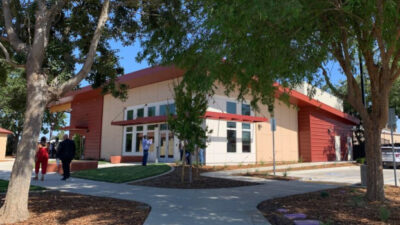Governments across the world are excited by the possibilities offered by digital tools—and are trying to keep up with digital expectations driven by the best consumer brands in the world.

Faced with growing populations and the increasing and difficult job of responding to an ever-growing mix of organizational demands, city governments should view their role more as enabling "platforms" rather than sole service providers. I believe this would allow them to unlock greater innovation, economic growth, and social value through engaging their broader ecosystem.
For a successful city to thrive, it needs to be considered as an ecosystem of interconnected elements, as sociologist and urban thinker Jane Jacobs wrote more than 30 years ago. Today, cities also need to consider their digital ecosystem. In this context, it’s becoming clear that government’s natural role is as an enabler.
Governments across the world are excited by the possibilities offered by digital tools, and are trying to keep up with digital expectations driven by the best consumer brands in the world. But attracting the right talent and building the capacity, or even procuring the right consultants to deliver these experiences, is hard.
To solve this problem, government should consider themselves a platform for open innovation. Rather than trying to design and build the best service or website they can imagine, they should step back and work on the underlying fundamentals of open data accessibility and service design. Let the wider digital community build the actual tools, interfaces, and experiences they want and need.
This "government-as-a-platform" approach isn’t strictly a technology concept, but more the application of platform thinking to administration, taking a cue from the most successful platforms like Apple’s app store for independent developers or Amazon. Amazon’s core business is not manufacturing and selling products, it is connecting producers with consumers efficiently and, in turn, accelerating both the supply and demand for goods.
A good example of this platform-government approach is London, where the Greater London Authority created the London Data Store, a public portal for city data. Sharing this information has resulted in hundreds of user-created applications for a wide range of purposes and resulted in a number of new businesses being created.
Arup helped the Greater London Authority develop the Smart London Plan, which included understanding the digital ecosystem from the Greater London Authority’s perspective, providing opportunities for the city’s population to get involved in finding solutions to London’s challenges, and using digital techniques and technologies.
Similarly, in New South Wales (NSW), Australia, Arup has been working with a cross-government team from the Department of Planning and Environment, Department of Premier and Cabinet, and the Treasury to open up the NSW State Budget paper. The project began in 2014 when we helped design a way to communicate a complex state budget paper through interactive data visualization, which was a big step up from the traditional way of releasing the information as a PDF.
Following on from this in 2015, we focused our efforts on publicizing the data on the new state open data portal, data.nsw.gov.au, which resulted in a great community response and other government departments creating their own visualizations. By helping government officials position themselves as a platform for open innovation, these initiatives encourage further community involvement.
The 2016 version has just been released this year, with a focus on internal processes for management and publishing of data across government.
How do you view government’s role within the city’s digital ecosystem, and do you have any good examples of city digital initiatives to share?
-Ben Cooper-Woolley is based in Arup’s Sydney office and has a background in geographical information systems (GIS). He works with teams from Arup around the world in technology strategy, design, and development to facilitate the communication and better understanding of complex data. This article originally appeared on Arup. Arup is a CFE Media content partner.



